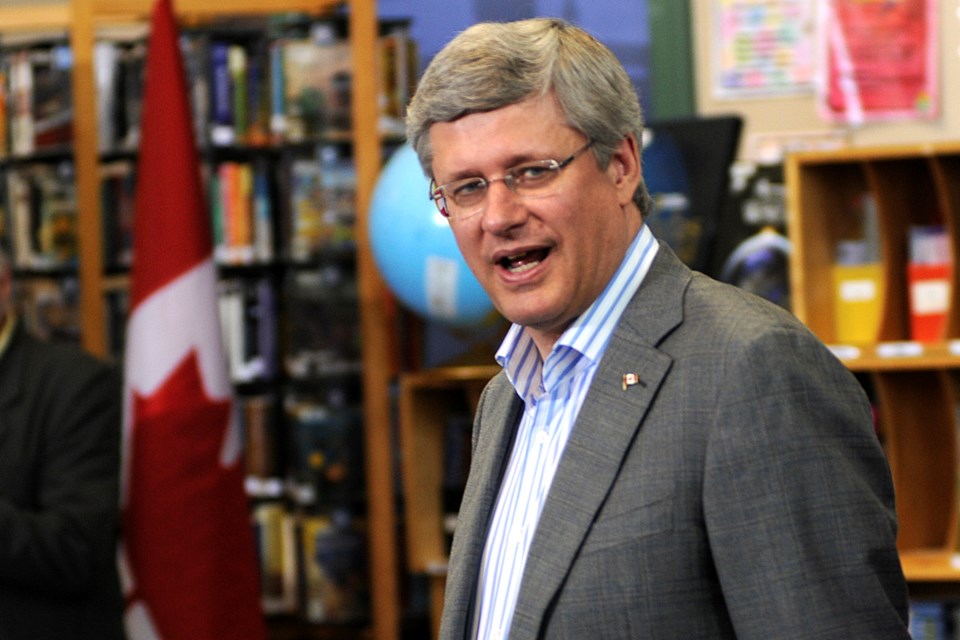As this long and increasingly nasty federal election campaign winds down one thing is worth noting. This is the first time Canadians have been exposed to such a heavy dose of “dog whistle politics.” That’s all primarily thanks to Stephen Harper and his minister of multiculturalism and defence Jason Kenny.
If you are not familiar with that term, you are not alone. I must admit I only began to notice it in the odd news report or heard it come tripping off the tongues of pundits and politicians as they described various Tory statements, including the “offensive” niqab or “old stock” Canadians, or “barbaric cultural practices.”
But let me explain. In the same way that dog whistles are only audible to dogs, dog whistle political statements may go by most people unnoticed, but the target audience gets the intended coded message, which usually has a racist element to it.
While the term was apparently coined in Australia and is a common practice in Great Britain, it is nowhere more vigorously pursued than in the United States.
In 2014, Berkley law professor Ian Haney Lopez wrote the book Dog Whistle Politics: How Coded Racial Appeals Have Reinvented Racism and Wrecked the Middle Class.
This expert in racial justice traces the recent history of this type of politics in his own country back to President Richard Nixon and Alabama Governor George Wallace.
Ronald Reagan was a master of the practice while campaigning for president in 1980 as Lopez points out. He told tales of Cadillac-driving “welfare queens” and “strapping young bucks” using food stamps to buy T-bone steaks. It was welfare out of control.
Reagan didn’t have to say he was talking about racial minorities. He was blowing a dog whistle, which was inaudible at one level but clearly a critique of racial minorities heard at another level.
As Lopez points out, the appeal of the candidate using this technique is amplified as they promise, among other things to crack down on crime, protect us from Islamic terrorists and toss out illegal immigrants.
Sound familiar?
What Lopez also says is usually going on at the same time is a plan to cut taxes for the very rich and for corporations, as well as reducing government oversight in the corporate world.
While the NDP’s Tom Mulcair calls this type of provocative politics “a distraction” from the real issues that are important to Canadians, I would rather see dog whistle politics fundamental to Harper’s plan to win the election by solidifying his core vote and even pulling a few more people into the tent.
If Harper learned this technique from anyone, it could have been from one of his mentors, Australian Prime Minister John Howard. According Canadian Press reporter Joan Bryden, in the mid-1990s, Howard was accused of using words like “un-Australian” and “illegals” in a veiled pitch for support from racist, white Australians. Howard’s campaign manager was Lynton Crosby, often described as the “master of dog-whistle politics.”
Bryden observed that Crosby introduced Britain to his brand of politics in 2005, creating election messaging for the Conservative party that focused on hot button issues like immigration and crime under the slogan, “Are you thinking what we’re thinking?” Among the messages: “It’s not racist to impose limits on immigration.” Crosby went on to become U.K. Prime Minister David Cameron’s chief political strategist.
So where is Lynton Crosby today? Well as luck would have it, last month he was added to Stephen Harper’s campaign payroll. Following a series of scandals in the senate, fumbling on the Syrian refugee crisis file and the resulting falling polls, Crosby, who was apparently a consultant, was brought on full time.
And while Harper is certainly capable of being a shrewd campaigner in his own right, bringing on Crosby seems to have sharpened his message of fear and loathing.
In fact it has gotten a bit absurd. Aside from demanding a dress code of sorts for citizenship swearing-in ceremonies, Harper has pondered the possibility of banning the niqab for any federal public servant.
Remarkably, according to the public service union, none now wears the niqab and none intends to.
But that dog whistle was heard by those who would support Harper at the ballot box next week.
And ain’t that a shame.
@allengarr



